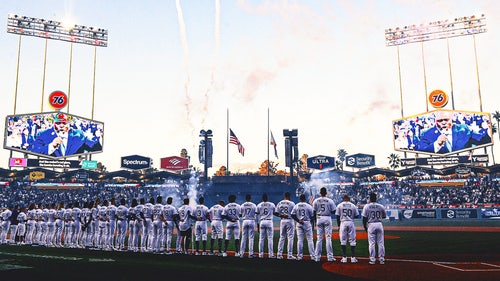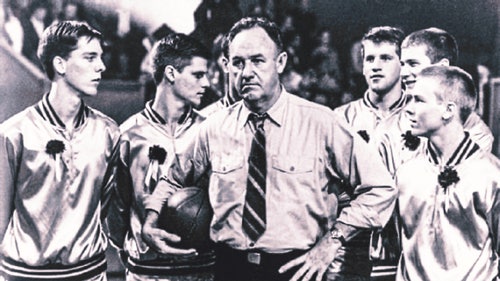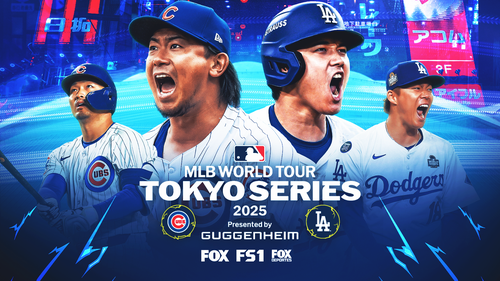
Developments in CSN-Houston and MLB blackout lawsuits

By Nathaniel Grow
Major League Baseball has seen its fair share of television-related litigation over the last few years. On Thursday, there were significant developments in two of these lawsuits.
First, the legal proceedings surrounding the failed CSN-Houston regional sports network took a new turn when the bankrupt station filed suit against Comcast, accusing the cable provider of a variety of misdeeds. If successful, the case could potentially allow the Houston Astros and the National Basketball Association’s Houston Rockets – the two primary owners of the defunct station – to recover hundreds of millions of dollars in damages.
Meanwhile, the long-running Garber lawsuit challenging MLB’s television blackout and pay-per-view package policies took an interesting turn as well, when the parties in a companion case challenging the National Hockey League’s analogous TV policies reached a tentative settlement. Although this settlement does not directly affect the suit against MLB, the deal nevertheless has potential implications for the Garber case.
Let’s begin with the CSN-Houston suit. Wendy Thurm previously covered the failed network’s many issues back in 2013, but by way of a brief refresher, the station launched in late-2012 as a partnership between the Astros, Rockets, and Comcast. The network quickly began to struggle financially, however, when cable providers refused to pay the roughly $3.50 per subscriber fee the network was demanding.
Eventually, the station was unable to pay the Astros and Rockets their contractually guaranteed broadcast rights fees, and as a result, Comcast sent the network into bankruptcy in September 2013 after the Astros had threatened to reclaim the team’s broadcast rights. The bankruptcy court ultimately approved the sale of the network to DirecTV and AT&T last October.
On Thursday, the trustee administering CSN-Houston’s bankruptcy – a person who is generally responsible for recovering as many of the failed network’s assets as possible – filed a lawsuit against Comcast contending that the cable provider “did everything in its power to financially impair” the station so that it could acquire the Astros’ and Rockets’ broadcast rights for itself at a reduced rate. Unlike most of the other regional Comcast Sports Networks, which are majority-owned by Comcast, the cable provider only owned a 22.5% share of CSN-Houston. Thursday’s suit argues that Comcast intentionally undermined CSN-Houston so that it could acquire a majority share of the network for itself.
In particular, the suit alleges that Comcast repeatedly ignored requests by the Astros asking the station to formulate a new business plan after it became apparent that the network would not be able to generate sufficient revenues at its initial per-subscriber fee. Moreover, the suit contends that Comcast – which also owns the NBCUniversal media conglomerate – intentionally refused to leverage its existing business relationships with fellow cable providers like DirecTV and AT&T to secure carriage of CSN-Houston. The suit asserts, for example, that Comcast specifically excluded CSN-Houston from deals it struck with fellow cable providers covering a host of other Comcast-owned networks (including its other regional sports networks).
Ultimately, the suit contends, Comcast plunged the network into bankruptcy against the Astros’ wishes in the hopes of purchasing the Astros’ and Rockets’ broadcast rights in bankruptcy at a substantially reduced price. After Comcast allegedly attempted to low-ball the two teams during the bankruptcy process, however, they eventually reached an agreement to sell the network to DirecTV and AT&T instead (who rebranded it Root Sports Houston in November 2014). Thursday’s lawsuit essentially claims that Comcast’s alleged misconduct resulted in the network selling for a substantially lower price than it would have otherwise.
By suing Comcast for breach of contract and fraud (among other legal claims), CSN-Houston’s trustee hopes to force the cable company to reimburse the station for the financial damage that it allegedly incurred. Although the complaint did not request a specific sum of money, damages in the case could ultimately run into the hundreds of millions of dollars if the plaintiff were to prevail. Indeed, the Astros and Rockets are estimated to have lost upwards of $700 million as a result of the bankruptcy, including more than $130 million in unpaid broadcast fees. The suit does not seek to undo the network’s sale to DirecTV and AT&T, however, so it will not directly affect the Root Sports Houston station.
While Comcast will undoubtedly dispute the allegations in the case, it nevertheless would not be surprising if the parties eventually agree to settle the suit. A settlement would allow Comcast to avoid incurring a potential nine-figure judgment, while at the same time ensuring that the Astros and Rockets are able to recoup at least a portion of their losses.
Turning to the Garber lawsuit, although not directly impacting MLB, Thursday’s news that the NHL has tentatively agreed to settle its television antitrust lawsuit carries potential implications for the case against MLB as well. Not only does the Laumann suit assert substantially the same legal allegations against the NHL that the Garber case makes against MLB – with both suits contending that the leagues’ respective television blackout and pay-per-view subscription package polices violate the Sherman Act – but both cases also feature the same attorneys representing the two sets of plaintiffs. And because the two cases were both filed in the same court back in 2012, they were quickly consolidated and have been proceeding in tandem ever since.
As a result, the NHL’s recent agreement may foreshadow the terms of a potential settlement by MLB in the Garber case as well. In particular, rather than continue to only offer a single league-wide pay-per-view package, the NHL has agreed to allow out-of-market fans to purchase a smaller package featuring only their favorite team’s games for 20% less than the cost of the league-wide service.
These single-team packages will continue to be subject to the NHL’s existing blackout restrictions, however. This means that a fan still will not be able to watch any game involving his or her local team(s) via the pay-per-view service. Moreover, the NHL only agreed to offer these single-team packages for five years, meaning that the league is free to revert to exclusively selling a league-wide pay-per-view package in 2020 (although if it did, it could then face a new lawsuit asserting similar legal claims).
The fact that the NHL’s settlement does not force the league to alter its blackout policy is significant. As in the Garber case against MLB, the NHL’s blackout rules had been a major part of the Laumann case. This may suggest that the plaintiffs’ attorneys are ready to resolve both cases, and thus would be willing to reach a similar deal with MLB in the Garber case.
Indeed, because the court in the Laumann and Garber suits ruled last month that the plaintiffs could not pursue monetary damages in the two cases – but instead could only seek injunctive relief forcing the leagues to change their policies – the two suits suddenly appear much less lucrative. As a result, the plaintiff’s lawyers may have decided that the time had come to secure the most favorable deal possible. Notably, the NHL’s settlement includes a provision in which the league agrees to pay the plaintiff’s attorneys $6.5 million in legal fees, ensuring that the lawyers will at least recover their investment in the suit.
Assuming that the plaintiffs’ attorneys are willing to agree to a such deal in the Garber suit as well, it wouldn’t be surprising if MLB eventually enters a similar settlement agreement in the case. While offering a single-team pay-per-view package would certainly be a concession on MLB’s part, such a deal would allow MLB to maintain its controversial blackout policy, a vital issue for the league.
As unpopular as the blackout rules may be with fans, they are critical to MLB’s current business model. Indeed, MLB teams are able to generate tens to hundreds of millions of dollars in local television revenue by offering regional sports networks the exclusive rights to telecast their games in their local market. If the blackout policy were struck down in court, all thirty MLB teams would have to renegotiate their local television contracts, inevitably costing the league millions of dollars in broadcast fees.
So from MLB’s perspective, any deal that would allow it to maintain its current blackout rules would undoubtedly be quite attractive. But from a fan’s perspective, although the ability to purchase a single-team pay-per-view package would certainly benefit those that only wish to watch a single out-of-market team’s games, any settlement that doesn’t resolve the blackout issue would have to be seen as a relatively disappointing outcome.
Notably, the judge in the Laumann and Garber cases must still approve the NHL’s proposed settlement in order to make sure it is fair to everyone represented by the plaintiffs in the class action. And while judges are usually fairly receptive to agreements like this, it is by no means unheard of for a judge to reject a tentative settlement in order to send the parties back to the bargaining table. Considering that the NHL settlement does nothing to address the blackout issue – despite it having been a major part of the Laumann case – it is possible that the judge will reject Thursday’s agreement. If so, it would obviously then be unlikely that the same judge would approve a settlement on roughly the same terms in MLB’s suit.
Nevertheless, Thursday’s news suggests that the plaintiffs’ attorneys in the Garber case may be willing to strike a deal with MLB without requiring the league to modify its television blackout policies. If so, fans hoping that the Garber case would finally bring about an end to MLB blackouts may be left unsatisfied.
More from Fangraphs:










